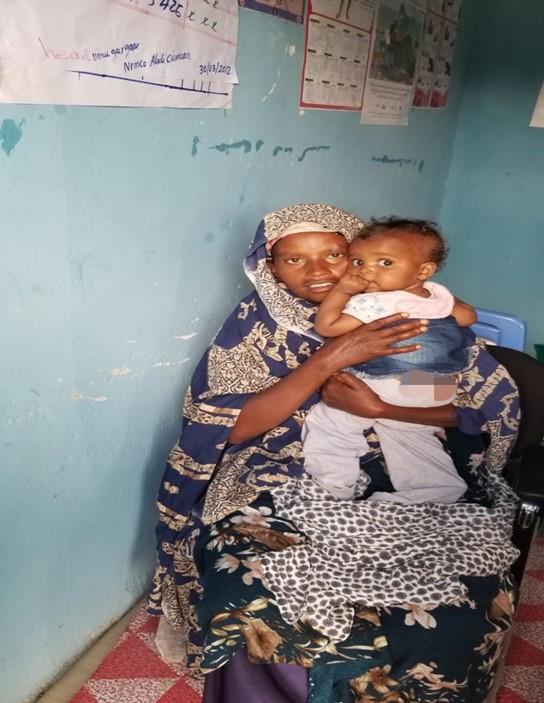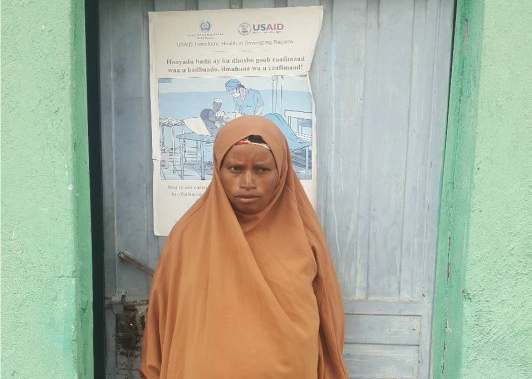Amina is the mother of six children – five daughters and one son. She lives in Awbare Woreda of the Somali Regional State in Ethiopia. Amina and her husband both work as daily laborers, making their living by taking jobs as porters and launders in their neighborhood. Their joint income is not enough to support their family, which often makes it difficult to feed their children and cover their school-related expenses.
Amina gave birth to her six children within the first few years of her marriage. The age gap between each of her children is between 12-14 months. She struggled during her pregnancies, unable to manage the demands of her household, low wage job, and raising her children.
“Having multiple children with less than two years in between them makes your life harder and challenges you economically, physically and psychologically,” Amina said.
In times of need, she was unaware of where to seek help. She turned to her neighbors who were supportive and helped her with household tasks like cooking and cleaning while she was in the final trimester of her earlier pregnancies. Her neighbors supported her with her first four children, however as time passed, their support declined. The demands of work inside and outside of the home left her with almost no time to discuss the future of their family with her husband.
In May 2019, while pregnant with her sixth child, Amina met with a community volunteer from Umulgargar, a local community-based association. Transform HDR had supported community volunteers who were going house to house in her kebele to identify pregnant women for referral to health services including ANC, to the Pregnant Mother’s Conference (PMC), and for health facility-based delivery. Amina eagerly accepted the referral from the community volunteer and headed to the Awbare Health Centre for ANC. There, Amina met with a health care provider who informed her of the importance of ANC during pregnancy, institutional delivery and family planning. She also chose to enroll in the afore-mentioned PMC hosted by Transform HDR, which is held in various health facilities and consists of four sessions on a monthly basis, presenting an opportunity for pregnant women to gather and share their lived experiences.
Amina completed all four sessions of the PMC and was among the first round of graduates from Awbare. The conference provided her an outlet to share her experience with pregnancy and also to learn from her peers. She feels the other mothers gave her the motivation to complete all sessions, in spite of the demands at home which kept her busy.
Upon graduation from the PMC, Amina decided she would like to begin utilizing family planning. She felt very comfortable among PMC session facilitators and was sure she wanted to receive contraception at the same health center. After discussing her decision with her husband, she was ready to move forward in determining the number and spacing of her future children.

The trust she established with the Umulgargar community volunteers and health center counselors allowed her to confide in them and openly discuss her concerns. They helped her feel well informed and empowered to tackle any obstacle.
Amina’s sixth child, Maqsuud, is now nine months old. Amina feels more confident than ever in managing her family and home. She feels supported and better educated about her health and the resources available to her.
“I haven’t experienced feeling free for this long without being pregnant. For me, I’ve seen a big difference that makes me realize that I have to continue using it. I am now capable of helping my husband economically and I am free from what my neighbors called me when they’d hear that I am pregnant twice in a year. They used to say, ‘as usual again she is pregnant.’ I would like to say thanks to USAID Transform HDR and Ummulgargar,” said Amina.
Amref Health Africa teams up with African communities to create lasting health change.

